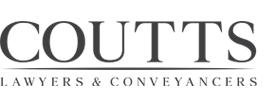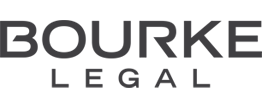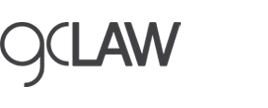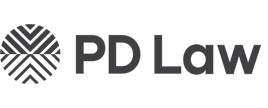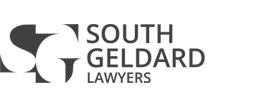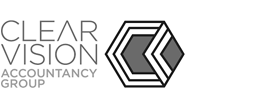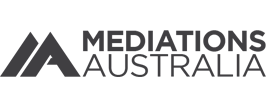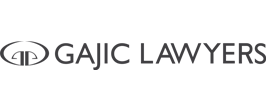We enhance healthcare practice branding with services in market research, strategy, development, design, and implementation.
Our expertise in SEO, web design, print collateral, and graphic design, tailored specifically for the healthcare sector, seamlessly connects you with potential clients while navigating industry regulations with finesse. We focus on crafting a comprehensive brand style that speaks to your audience, ensuring every aspect of our work is captivating and complies with healthcare standards.
At the core of our approach is the aim to create genuine relationships with your clients through our user-friendly services. We excel in patient engagement, effective communication, and establishing a unique presence for your practice in the healthcare market. With deep respect for the healthcare field, we meticulously develop and implement a multifaceted brand strategy, covering web, print, and visual design, to foster growth and build trust in your practice.
In today’s rapidly evolving healthcare landscape, the digitalization of medical practices has become a necessity. With the increasing demand for efficient data management, streamlined workflows, and enhanced patient care, healthcare providers are turning to comprehensive software solutions to meet these challenges. By integrating various functionalities into a unified platform, comprehensive software empowers healthcare practices to optimize operations, improve patient outcomes, and drive sustainable growth.
The benefits of adopting comprehensive software are multifaceted. From centralizing patient data and automating administrative tasks to facilitating secure virtual consultations, these solutions offer a holistic approach to practice management. By leveraging the power of technology, healthcare providers can focus on what matters most – delivering exceptional care to their patients.
Core Functionality of Comprehensive Software
Electronic Health Records (EHR) Systems: Electronic Health Records (EHRs) are the backbone of modern healthcare software. These digital repositories securely store and manage patient data, including medical histories, test results, and treatment plans. EHRs offer several key advantages, such as:
- Secure storage and easy access to patient information, promoting better-informed decision-making.
- Integration with other systems, allowing seamless data sharing across healthcare providers.
- Access control and audit trails, ensuring patient privacy and data integrity.
Practice Management Software: Comprehensive software solutions often incorporate practice management features that streamline daily operations. These tools help healthcare practices manage appointments, billing, claims processing, and reporting with improved efficiency. Key features may include:
- Appointment scheduling and reminders, reducing no-shows and optimizing provider schedules.
- Billing and claims management, ensuring accurate invoicing and timely reimbursements.
- Reporting and analytics, providing insights into practice performance and patient data.
Telehealth Integration: The COVID-19 pandemic has accelerated the adoption of telehealth services, enabling healthcare providers to deliver remote consultations and care. Comprehensive software solutions can facilitate secure and efficient telehealth integration, offering features such as:
- Virtual waiting rooms and video conferencing capabilities for seamless remote consultations.
- Integration with EHRs, allowing providers to access and update patient records during virtual visits.
- Secure messaging and file-sharing tools for sharing test results or treatment plans with patients.
Additional Features to Consider
Patient Engagement Tools: Enhancing patient engagement is crucial for improving health outcomes and fostering long-term relationships. Comprehensive software solutions often provide tools to facilitate better communication with patients, such as:
- Appointment reminders via email, text, or automated calls, reducing no-shows.
- Online patient portals, enabling secure messaging, access to medical records, and appointment scheduling.
- Patient education materials, empowering individuals to take an active role in their healthcare.
Security and Compliance: Protecting sensitive patient data and adhering to regulatory requirements, such as HIPAA (Health Insurance Portability and Accountability Act), is paramount in the healthcare industry. Comprehensive software solutions prioritize security and compliance by incorporating features like:
- Encrypted data storage and transmission, safeguarding patient information.
- Role-based access controls, ensuring only authorized personnel can access sensitive data.
- Audit trails and reporting tools, facilitating compliance monitoring and audits.
Customization and Scalability: Healthcare practices vary in size, specialty, and operational requirements. Comprehensive software solutions should offer customization options and scalability to adapt to these unique needs. Look for solutions that can be tailored to your practice’s workflows and can grow with your organization as it expands.
Implementation and Considerations
Implementing comprehensive software in a healthcare practice requires careful planning and execution. The process typically involves:
- Conducting a needs assessment to identify your practice’s specific requirements.
- Evaluating and selecting a reputable software vendor with a proven track record in the healthcare industry.
- Migrating existing data to the new system, ensuring data integrity and accuracy.
- Providing comprehensive staff training to ensure smooth adoption and effective utilization of the software.
When choosing a comprehensive software solution, healthcare practices should consider factors such as:
- Budget and overall cost of ownership, including initial investment and ongoing maintenance fees.
- Feature set and compatibility with existing systems and workflows.
- User-friendliness and ease of adoption for staff members.
- Vendor support and resources for training, troubleshooting, and software updates.
Conclusion
In the rapidly transforming healthcare landscape, comprehensive software solutions have become invaluable assets for practices seeking to optimize operations, enhance patient care, and drive growth. By integrating core functionalities like EHRs, practice management tools, and telehealth capabilities, these solutions offer a centralized platform for efficient data management, streamlined workflows, and improved patient engagement.
As technology continues to advance, the future of healthcare software promises even greater innovations. From artificial intelligence-powered decision support systems to advanced analytics and predictive modeling, the potential for comprehensive software to revolutionize patient care is immense.
Healthcare providers who embrace comprehensive software solutions today will be well-positioned to navigate the challenges of tomorrow. By leveraging the power of technology, practices can stay ahead of the curve, deliver exceptional care, and drive sustainable growth in an increasingly competitive and dynamic healthcare environment.
Take the first step towards transforming your practice by exploring how comprehensive software solutions can streamline operations, enhance patient experiences, and empower your team to achieve greater success.


